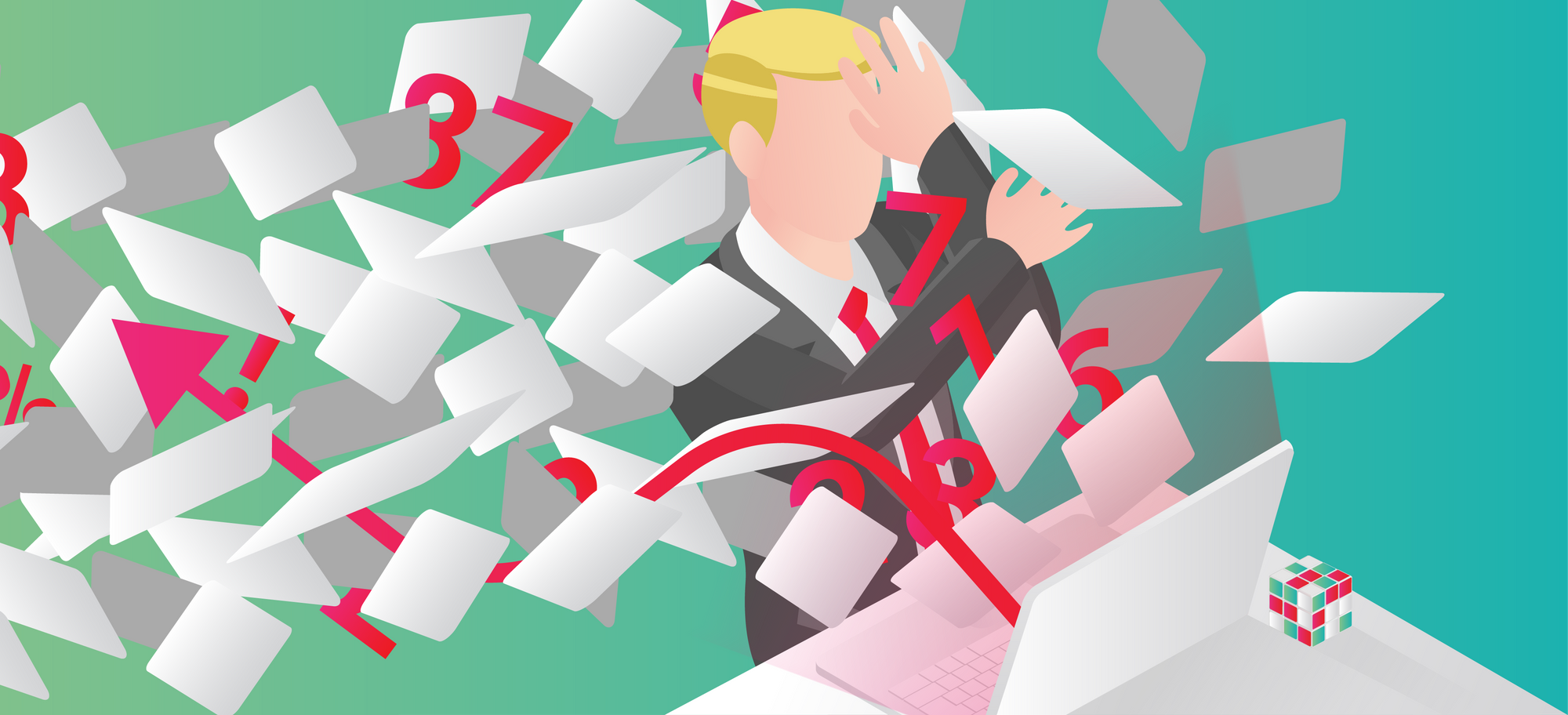When people have to make a decision, they act to the best of their ability based on the information available, but what happens when there's too much information?
Before the World Wide Web, the media landscape was a trickle-down system from producer to consumer. Now, the rise of the internet has ushered in an era of democratised access to information—creating an environment where we are less equipped than ever to determine what's accurate, and how we ought to rely on the news to inform the decisions that shape our lives.
Navigating today’s news ecosystem can be extremely taxing. There’s too much information, too many conflicting sources and too much misinformation which is readily perceived as legitimate.
via GIPHY
The Nobel Prize-winning political scientist, Herbert Simon, described information overload as “a wealth of information [which] creates a poverty of attention and a need to allocate that attention efficiently among the overabundance of information sources that might consume it.”
In simpler terms, a menu with five items per course is better than one with five thousand per course, because without the methods, experience and tools that we need to be selective about the information that we interact with, we're likely to gorge until we become overwhelmed.
via GIPHY
It’s not uncommon to find equally credible sources publishing conflicting information about the same topic, but studies have shown that the quality of our decisions suffer when information overload occurs. In situations like these, readers often find themselves doing one of the following:
- Subscribing to the narratives that fit their existing worldview,
- Subscribing to the publishers/individuals/institutions they already trust,
- Disengaging from the dialogue/information/topic due to cognitive overhead,
- Spending time and resources investigating the nuances and arriving at a conclusion
There are disadvantages to all four responses. Subscribing to narratives that fit into your own worldview or sticking to the same publishers often leaves people in filter bubbles. Instead of broadening their perspectives through exposure to different points of view, people become intellectually isolated —resulting in a myopic view of the world or a problem. Disengagement with the news leaves people at a disadvantage when forming opinions on important topics that affect their communities. By far, the best option is arriving at a conclusion through investigation, but who has the time to investigate? We lead busy lives and the vast amounts of information that exists make it difficult to know where to start.
The Logically platform has been developed to give users just the right amount of credible information. Our advanced AI-powered tools make navigating today’s treacherous news ecosystem simpler. Every month, we curate millions of articles, from thousands of news publications from across the political spectrum, so you don’t have to spend time splitting hairs to get the facts. We’ve made it our mission to empower our users to engage with the news, improve civic discourse and facilitate critical thinking.
Sign up to the Logically Platform here




Copied!